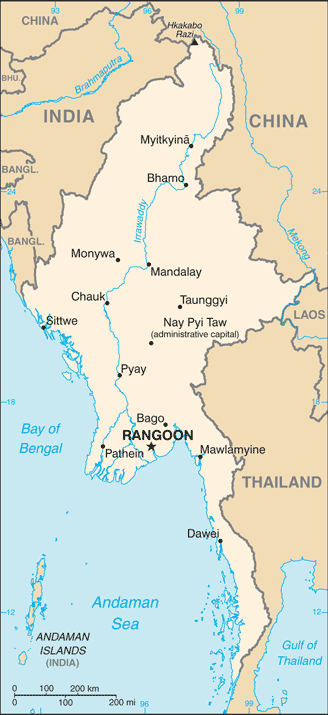The military-dominated transitional regime in Myanmar (Burma) is fending off sharp criticism from China after its fighter-bombers allegedly accidentally crossed into China and dropped bombs on farmland, killing four Chinese citizens.
They deny that the aircraft, which were engaged in purported counterinsurgency operations near the 2,000-kilometer border, ever entered China. Myanmar’s Air Force is relatively old and decrepit after years of global isolation and sanctions — Chinese, Soviet, and Yugoslavian equipment from about the 1950s to the 1980s — but they maintain that GPS put them on their own side of the border.
Beijing asserted that this is actually just the latest territorial violation in a pattern they have been tolerating for some time.
China has threatened to take “decisive” measures if there is a repeat of a deadly attack by Myanmar forces on its territory, allegations that officials in Yangon deny.
Speaking at his annual news conference on Sunday, Li Keqiang, the Chinese premier said that the government had the ability and responsibility to “firmly defend” the stability of the border.
In a similar statement issued late on Saturday, Fan Changlong, who is a deputy head of the powerful Central Military Commission, said Myanmar air force aircraft had crossed the border “many times” recently.
The government of Myanmar recently emerged from the shadows under new leadership and is supposed to be undertaking a transition from direct military rule to democracy after decades of poverty, misery, and incompetence. However, most observers have questioned whether or not the new government is actually moving forward on the transition or is just a new paint job on the old system. There are also fears that the military might re-take direct power.
 The counterinsurgency campaign has targeted ethnically Chinese citizens in the remote frontier region and pushed tens of thousands of refugees across into China, both developments that can’t be welcome to the leadership in Beijing and has probably raised hackles even before the deadly air raid incident. The alleged rebels in Burma are mostly ex-Communists associated previously with a Chinese-backed insurgency before the Myanmar junta’s creation in the 1988 coup.
The counterinsurgency campaign has targeted ethnically Chinese citizens in the remote frontier region and pushed tens of thousands of refugees across into China, both developments that can’t be welcome to the leadership in Beijing and has probably raised hackles even before the deadly air raid incident. The alleged rebels in Burma are mostly ex-Communists associated previously with a Chinese-backed insurgency before the Myanmar junta’s creation in the 1988 coup.
China hasn’t been directly involved in a war in about thirty-five years and hasn’t even been involved in a proxy war in almost that long. However, it has reacted very strongly in rhetorical terms to the air raid and these other alleged violations. I still think the chances of China going to war with Myanmar are relatively slim still, but I wouldn’t count it out altogether.
Launching a war against an extremely inferior neighboring military without any friends on the world stage right now would probably be a pretty quick and effective way of re-consolidating the Chinese armed forces under civilian leadership. The former is in the midst of deep anti-corruption purges by the latter, which have rocked the senior military brass and probably unsettled the military as a whole. Rallying everyone to the flag to fight a quick retaliatory war against an unpopular and virtually helpless quasi-military regime would be a decent booster for the Communist Party leadership.
However, the ensuing problems of what might replace the Myanmar regime (or could be installed in its place) might be enough of a disincentive to persuade China just to rattle the sabres very loudly without actually using them. I also think going to war over this would be relatively out of character for China as it has defined itself in the post-1980 era (as a “non-interventionist”), and it seems more like something some other regime or country would do somewhere else in the world.


